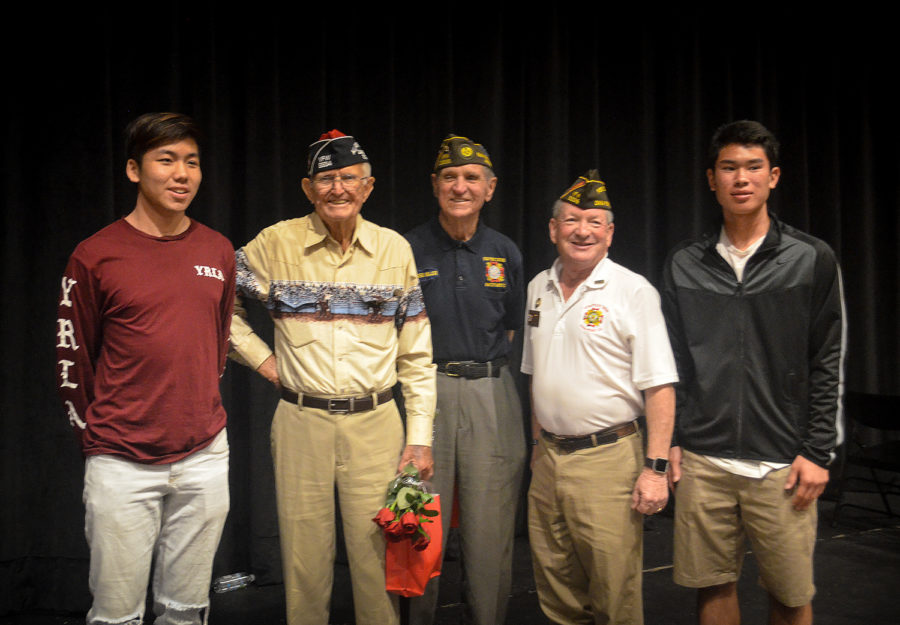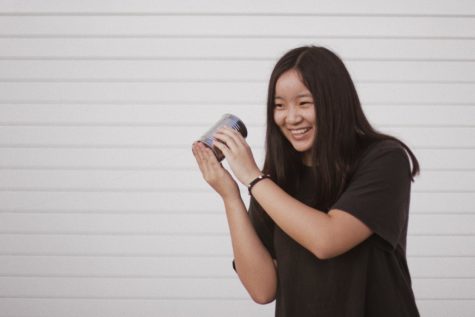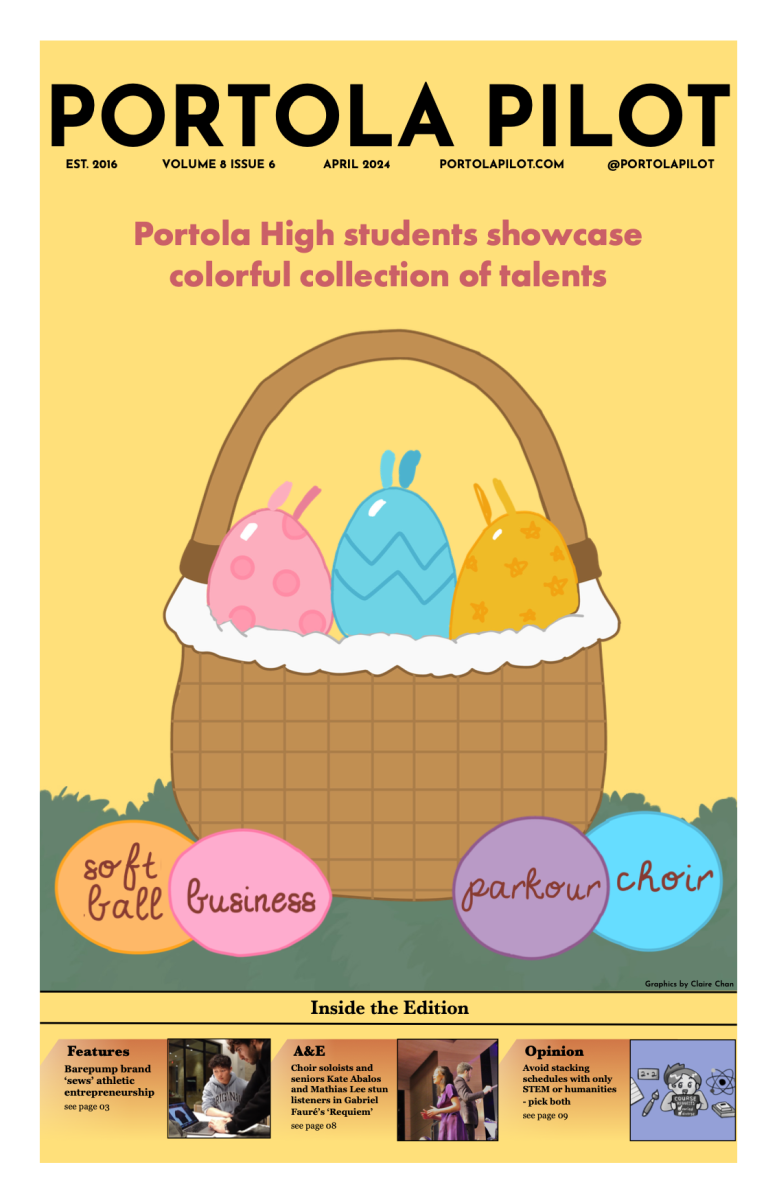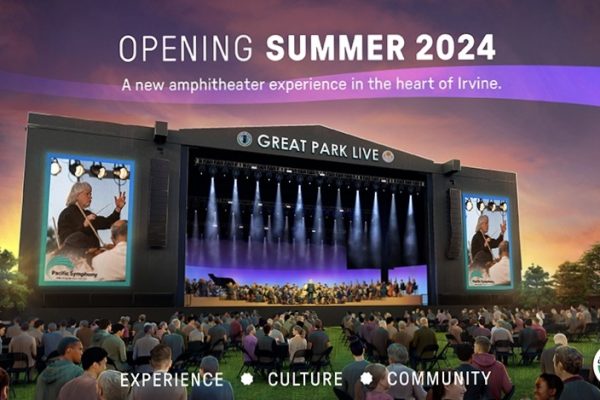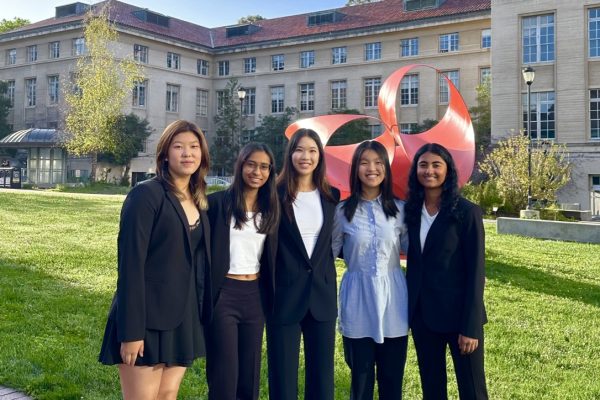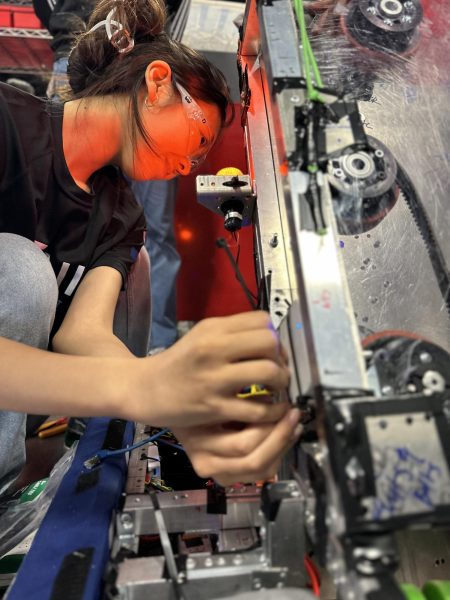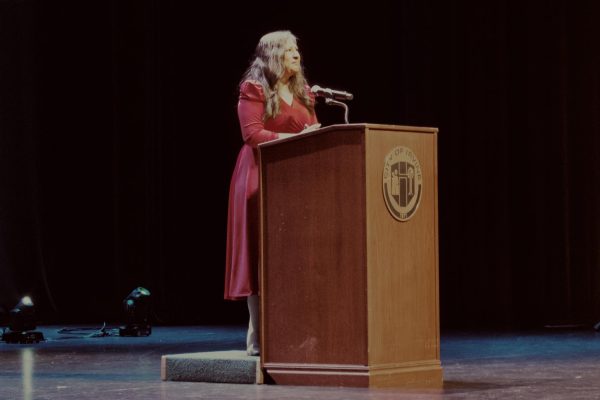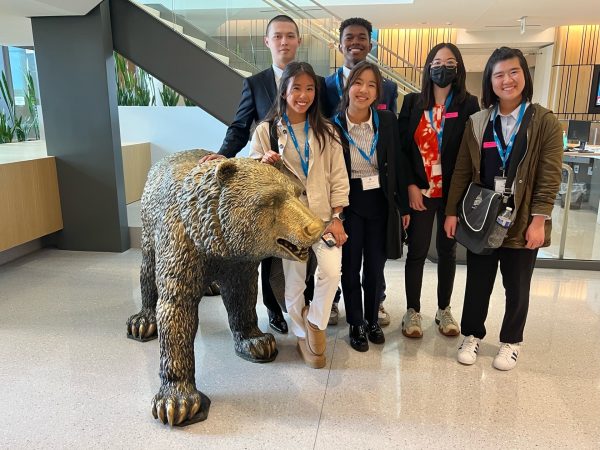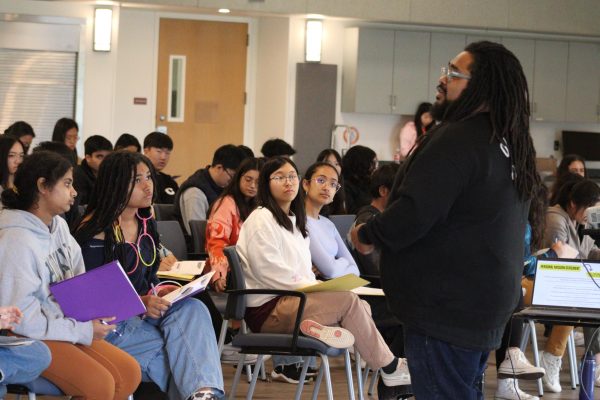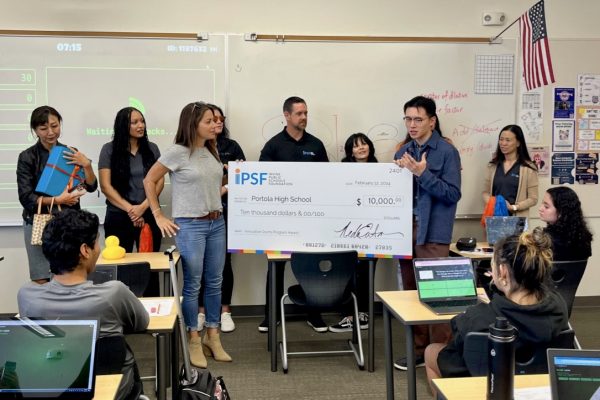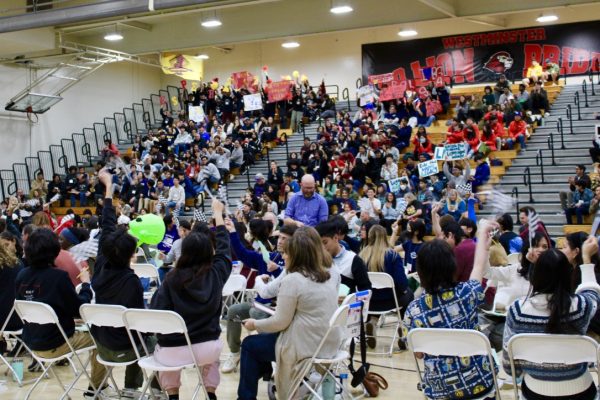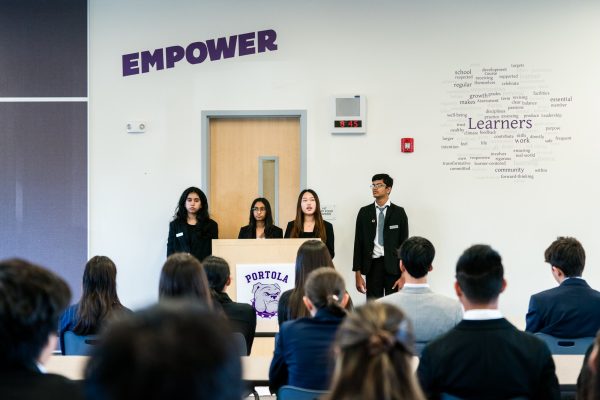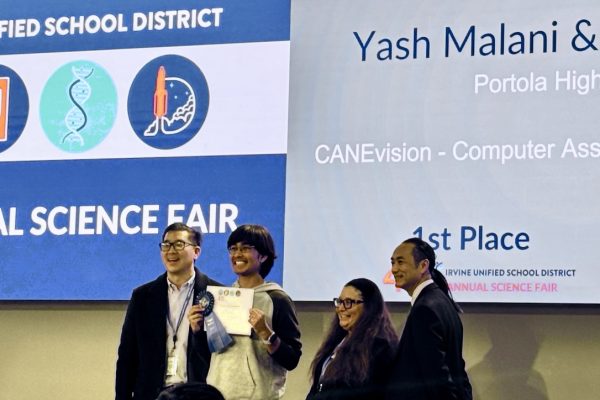World War II Veterans Have No Time for Stalin
Sophomores Garrett Lim and Patrick Cui take a photo with World War II veterans Bill Hamilton, Loren Major and post commander of The Veterans of Foreign Wars Wayne Yost after the veterans reflected on their experiences in a presentation to the community.
February 15, 2018
The Wounded Warrior Project club hosted three World War II veterans to speak about their experiences on Feb. 10 in the Portola High theater. These veterans include Bill Hamilton, Loren Major and Jim Robertson.
Also in attendance were Wayne Yost, post commander of The Veterans of Foreign Wars (VFW) of Post 9934 and Vietnam veteran and author Jack Durish.
“We have over 560 members,” Yost said. “Each and every one of these members was a combat veteran, meaning they served in a combat zone. Not everyone had to pull a trigger on a weapon, but we were all in a combat zone, subjected to the dangers of warfare. That makes us different than the other 90 percent of the military, who perform vital functions but does not necessarily serve in combat.”
Wounded Warrior Project club president Amulya Chava organized the event with the board.
“What led me to start the club was my uncle, who is currently in the Indian Air Force and has been part of the Indian Air Force for 30 years,” Chava said. “Life, liberty and pursuit of happiness. We have these unalienable rights because of the men and women who fought to keep them unalienable.”
Hamilton was the first speaker. He served on multiple destroyers and arrived in Japan after the Hiroshima atomic bombing.
“I left school, went down to LA, signed up for the navy, passed all the tests, but had a problem. I couldn’t enter the navy because I was only 17, and I needed my parents’ consent,” Hamilton said. “All my life, I wanted to be a sailor. I loved the sea. I loved ships, but I found I was better at being a student than being a military personnel. When the time came for me to get out of the service in 1946, I took it as fast as I could to get back to civilian life.”
Major graduated high school in 1943 to serve in the military as an infantryman.
“I had six months of training as an infantry rifleman,” Major said. “Snow, cold, freezing cold. We landed in Le Havre with several ships and continued through Belgium.”
Robertson was a member of the Frogmen, now known as the SEALS.
“Our job was to swim in from about 2,000 meters out to the beach and make a reconnaissance of all the different obstacles the Germans put into the water that would tear the bottom of the boats out,” Robertson said. “A team, which I was a part of, of three people swam into Tokyo Harbor and took pictures of everything and swam back out.”
Chava and club adviser Jeanne Jelnick discussed the impact that these veterans’ testimonies would have on the community.
“These are individuals who believed on principle in something that caused them to risk their lives for that principle. For teenagers to see adults who are so committed, who are capable of such commitment, I think that is so important for teenagers to see,” Jelnick said. “Our school was built on a marine base; this is something we want the whole community to celebrate.”



